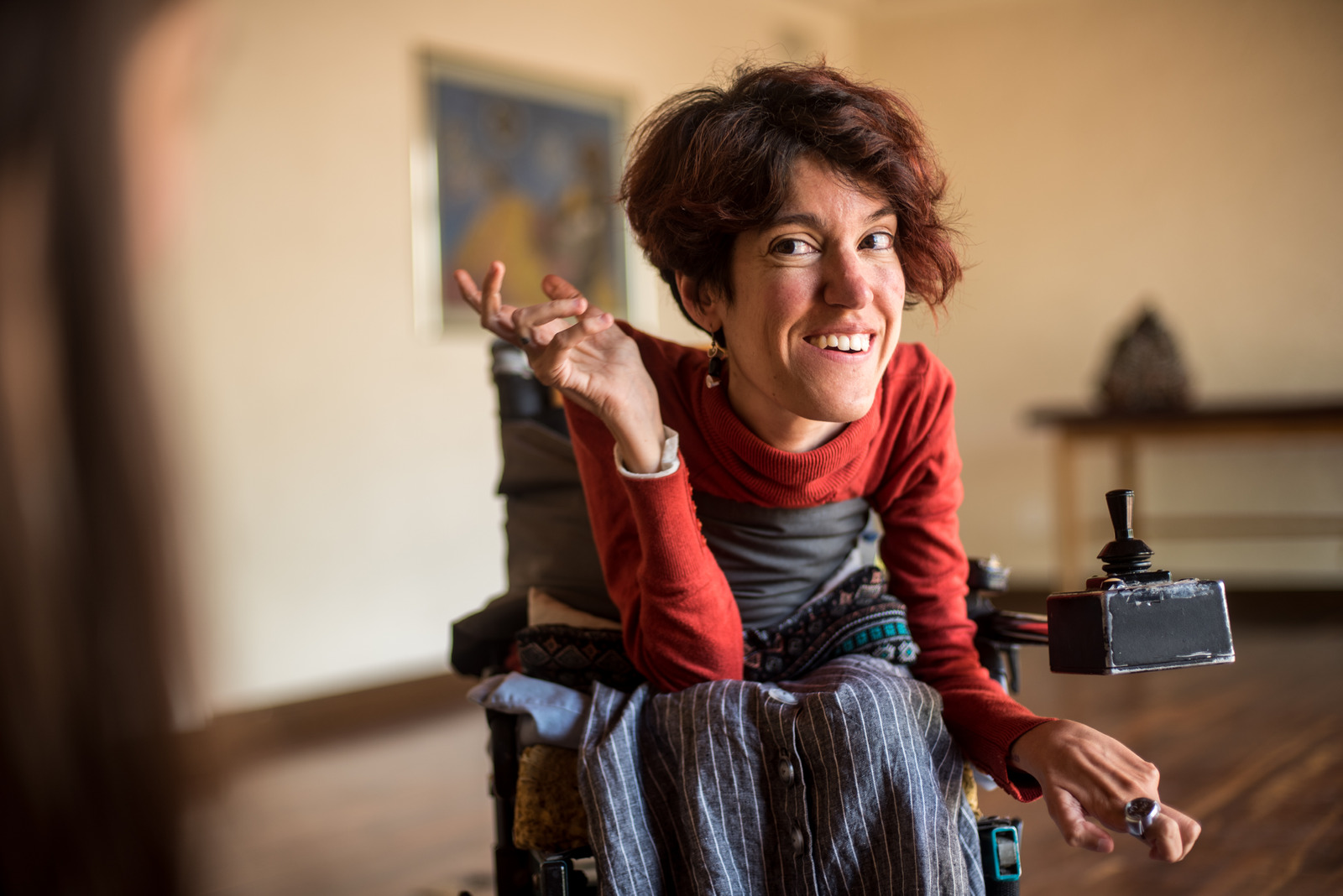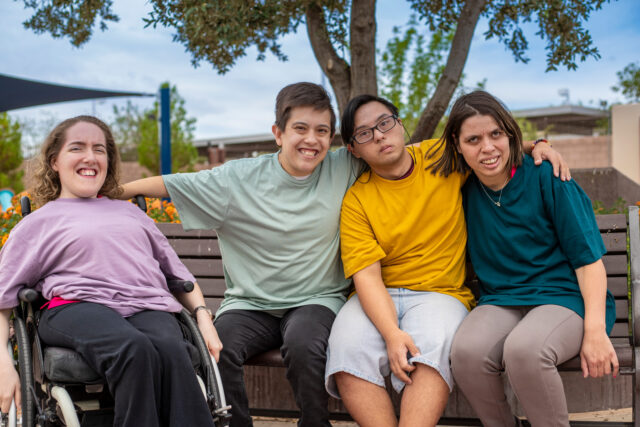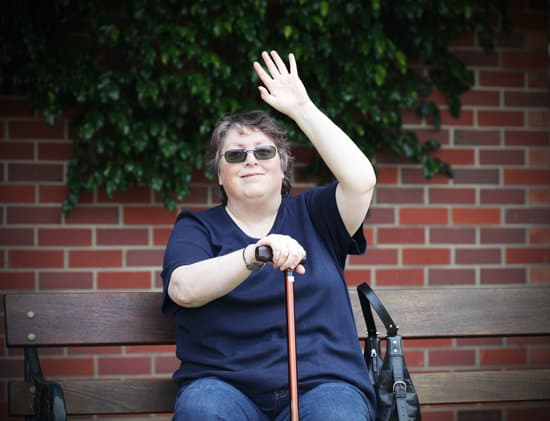
On Thursday 7 December the Independent National Disability Insurance Scheme (NDIS) Review final report was released to the public. The report contains 26 recommendations and 139 detailed actions which, if adopted by governments, would overhaul how support is provided both inside and outside the NDIS to people with disability.
The People with Disability Australia (PWDA) Policy Team is still unpacking the report and what it proposes, and our in-depth analysis will take some time. So far, we have found recommendations that could deliver positive outcomes and others that could have negative consequences, with questions remaining over how the report’s findings will be rolled-out and the safeguards to prevent unintended consequences.
PWDA will oppose any changes that compromise people’s access to support, choice and control and flexibility.
We are also committed to communicating with our members about the report, including detailed analysis of key areas.
What sounds positive?
PWDA believes many of the recommendations have the potential to deliver positive outcomes if they are done right. Here are a few that could make a real difference to people with disability.
Developing foundational supports and making mainstream services more inclusive and available
PWDA believes that whether you’re a NDIS participant or not, should not determine your level of access to disability support. People with disability who need support must be able to access support.
The development of foundational supports will mean the NDIS isn’t the only place people can go to for support. Foundational support could help ensure people with disability have access to support, improve inclusion and help to make the NDIS more sustainable.
The NDIS Review report has called on governments to invest in foundational supports and speed up making mainstream services more inclusive. The report also called for improved connections between the NDIS and mainstream services.
What’s proposed for foundational supports?

Two types of foundational supports are being proposed. General foundational supports will be for all people with disability and targeted foundational supports available to people with disability under the age of 65 with support needs but who aren’t eligible for the NDIS. The report recommends that foundational supports for people over the age of 65 are delivered through the aged care system.
- General foundational supports would include programs and activities like information and advice, individual and family capacity building, peer support, self-advocacy, and disability employment supports.
- Targeted supports can be things like peer support, help with cooking and cleaning and early development supports like speech therapists embedded in schools.
Last week an agreement was struck between the Commonwealth, state and territory governments to invest in foundational supports. These supports, if delivered consistently and funded long-term, have the potential to provide people with disability with more access to the support they need to live free and equal lives and participate fully in the community.
For example, providing services through schools and early education could mean more children can access early intervention supports like speech therapy and physical therapy.
The proposed timeframe for developing these foundational supports is five years. PWDA will be advocating for foundational supports to be available and delivered consistently across the country. People with disability and their representative organisations must have a seat at the table as these supports are planned and developed to ensure the best outcomes in every state and territory, including rural and remote areas where people with disability have struggled to access services delivered in a range of ways, such as through health and education settings.
What’s proposed for mainstream services?
The report’s recommendation to increase the scale and pace to make mainstream services more disability-inclusive is welcome.
Mainstream services are those available to all people with or without disability, such as health services, public transport and education. Ensuring people with disability can use the same services and participate in the same activities as everyone else is a fundamental human right.
The report also recognised the need for a stronger connection between the NDIS and mainstream services, to ensure participants have access to the most comprehensive range of supports as possible.
PWDA has long called out the barriers to accessing mainstream services for people with disability. The Disability Royal Commission’s final report also recognised the inaccessibility of mainstream services. Investing in making mainstream services more inclusive and accessible will make a difference to all people with disability.
Changes to how support is provided and accessed by people over the age of 65
The report recommends changes to ensure people can receive support through the NDIS and the aged care system at the same time once they turn 65.
When the NDIS was introduced people with disability over the age of 65 were not eligible. The report recommends providing access to the NDIS for Disability Support for Older Australians program participants, which could improve their access to support that meets their disability needs.
This could mean a larger number of older people with disability have access to a more comprehensive range of supports that will work for them.
Support navigating the NDIS and other disability supports
The Review recommended the introduction of a new role known as Navigators that will help people with disability under the age of 65 find and access all support available to them, including mainstream, community, foundational and NDIS supports.
Navigators will be available to all people with disability under the age of 65, and you do not need to be a NDIS participant to access one. Navigators will support people to navigate the whole system, and this should help people with disability to meet their goals and facilitate choice and control in choosing and accessing services and supports. The report has recommended creating different kinds of navigators to meet different support needs.
- General navigators would provide information and help people find and use mainstream services, foundational supports and NDIS services that will work for them.
- Specialist navigators would help with similar activities to the general navigator but have more expertise and time to respond to the participant’s support needs. They would provide support to participants who frequently access multiple service systems, such as hospitals or the child protection system.
The report also recommends the introduction of a psychosocial recovery navigator for people with psychosocial disability and a housing and living navigator for participants with housing and living budgets.
More housing options for people with disability

People with disability need a range of housing options and genuine choice over where they live, who they live with and the supports they receive in their homes.
The report had some recommendations that could transform the housing system so it works for people with disability in Australia. These include a call for governments to increase social housing stock that is accessible to people with disability – we know there simply isn’t enough housing available.
The recommendation for a dedicated housing plan under Australia’s Disability Strategy is something PWDA has long called for. The report recognises the need to connect a dedicated housing plan to the National Housing and Homelessness Agreement, in order to meet the needs of people with disability experiencing or at risk of homelessness and housing insecurity.
Alongside this, the report calls on all governments to commit to the Livable Housing Design Standards under the National Construction Code, recommending all new social housing to be built to gold level, meaning more accessibility.
The recommendation to separate the provision of housing from other supports is an important safeguard, removing conflicts of interest and the capacity for providers to assert power and control over people with disability.
While these recommendations could deliver positive outcomes for people with disability we remain concerned about proposed changes to how funding for 24/7 living supports is calculated and determined which we explore later.
What has raised concerns?
Some recommendations, if not rolled out right, could have implications for participant choice and control, flexibility and access to the supports they need.
Funding for support in shared supported accommodation
PWDA has a longstanding position calling for group homes to be phased out. The proposal for the 24/7 living support being funded based on those supports being shared with two other people has raised concerns that this could impede group home transition plans, and impact people’s choice and control over the supports they receive. We need much more detail on the proposed plan.
Registration for all providers
The report proposes mandatory registration for all NDIS providers. This is a big change as last financial year there were 16,000 registered providers and 154,000 unregistered providers receiving work through the NDIS.
Currently, to achieve registration, service providers are required to go through compliance and auditing procedures, which can often be lengthy and costly. Any change to the registration process will need to be done in a way that does not impact people’s access to known and trusted providers, especially in regional and rural areas.
The NDIS Review panel has proposed a ‘risk-proportionate model for the visibility and regulation of all providers and workers.’ In other words, this would be an approach where providers have different levels of registration based on risks created by the provider’s activities. There will be three levels for registration – advanced, general and basic registration – and a level for enrolment.
For example, a provider who provides daily living supports in a closed setting, like a group home, may be registered through Advanced Registration, while a provider who sells consumables, equipment, technology or aids would be enrolled in the lowest risk category of enrolment.
What happens next?

The report proposes some big reforms and it’s clear there’s a lot of investment and work that must take place before changes can be implemented and deliver genuine improvements for people with disability.
The report says changes should be implemented as a package, which would involve legislative reforms, staged over a five-year transition period. NDIS Participants will also be given at least two years to transition to new arrangements.
The Commonwealth Government will release its response to the report in 2024. Last week the Commonwealth Government committed to working in partnership with the disability sector on next steps, which PWDA welcomed in our media release.
People with disability have the knowledge and expertise of what the NDIS is like for participants, as well as unintended consequences of proposed changes.
PWDA will continue to advocate for a genuine co-design process to ensure the roadmap forward is executed correctly and does not compromise the choice and control of people with disability, access to supports, and flexibility in how that support is delivered.
Future updates from PWDA
This is a broad overview of what we know so far. Over the coming weeks we will be providing updates with more detailed information on specific recommendations and what they could mean for people with disability. These updates will cover topics including registration of providers, housing and living, workforce and foundational supports.
